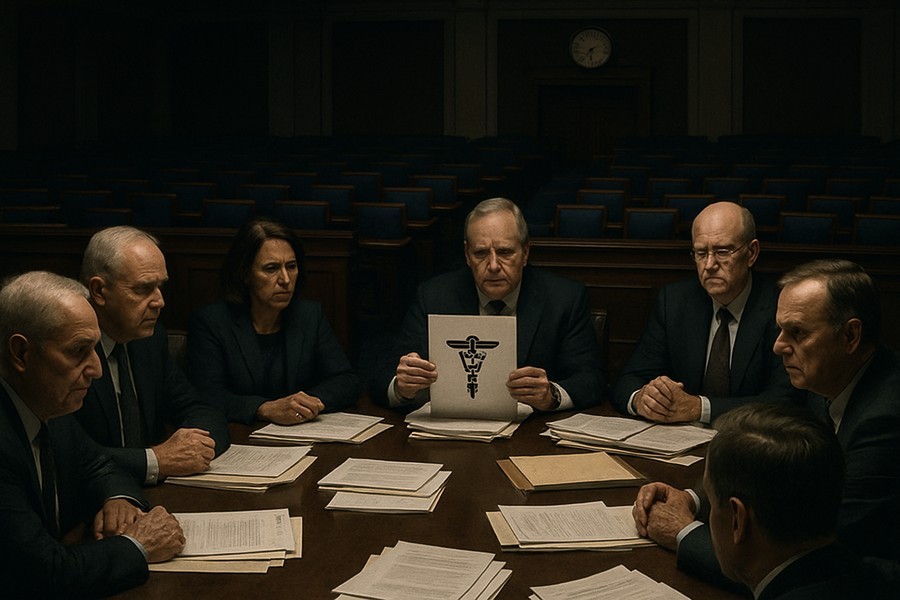
Democratic Senators Stand Firm on Health Care amidst Ongoing Government Shutdown
In a demonstration of perseverance, Senate Democrats are set to once again refuse a short-term spending bill aimed at restoring government operations. The Democrats remain steadfast in their demand for the inclusion of health care benefits in the bill, marking the tenth time they've taken this stance.
The repeated rejections of the funding bill has become a consistent occurrence in Congress, highlighting the severity of the current deadlock. This ongoing stalemate has resulted in a two-week government shutdown, leaving a significant number of federal employees without work and pay, while also placing a halt on the usual activities of Congress.
The Impact of the Government Shutdown
The shutdown's impact is not only felt in the halls of Congress, but also across the country. "Every passing day sees more Americans receiving reduced paychecks," stated the Senate Majority Leader, also noting the thousands of flight delays nationwide.
Despite repeated attempts to persuade the Democrats to approve the interim funding bill, the Majority Leader's efforts have been in vain. While there has been some discussion around potential health care compromises, there still has not been any significant progress towards ending the government shutdown.
Democrats Demand Health Care Subsidy Extension
Democrats are adamant that they will not compromise until there is a commitment to extend subsidies for health plans offered under the current health care law. They caution that without this extension, millions of Americans who purchase their own health insurance could face substantial increases in their premiums. This includes small business owners, farmers, and contractors.
With most states facing a crucial deadline on Nov. 1, Democrats believe that the public will pressure Republicans to engage in serious negotiations. "The tax credits are about to expire, and Republicans are doing nothing about it," commented the Senate Democratic leader.
Attempts at Bipartisan Discussion
Despite the stalemate, there have been some efforts to move forward. The Majority Leader attempted to initiate a vote on appropriations bills, a move that could potentially jumpstart some action in the Senate. However, it could also further widen the divide between the two parties.
Concerns Surrounding Health Care Costs
Democrats have been vocal about their concerns regarding health care costs, especially as the deadline for health plan subsidies approaches. They warn that if a deal is not reached soon, many could face steep increases in their health plans.
Under the current health care law, Democrats were able to increase subsidies for health plans during the pandemic. This resulted in record enrollment numbers and a historic decrease in uninsured individuals. Nearly 24 million people currently receive their health insurance from these subsidized marketplaces.
However, there is growing concern among Democrats and some Republicans that without these subsidies, many individuals may choose to forgo insurance due to increased costs. If this happens, it could lead to higher premiums for everyone, as the pool of insured individuals would significantly decrease.
Republican Response to the Health Care Subsidy Issue
Some Republicans have acknowledged that the expiration of the health plan subsidies may lead to problems and have suggested potential compromises. However, there is no unified stance among the GOP members. The Majority Leader has insisted that Democrats need to first vote to reopen the government before any health care negotiations can take place. The President has expressed his desire for a health care deal but has not actively participated in the debate.
Looking Forward: Appropriations Bill Vote
In the meantime, Senate Republicans are planning a vote to proceed with a bill to fund the Defense Department and several other areas of government. This move could potentially lead to the resumption of salary payments for the military. However, the House would need to return to Washington to vote for a final bill.
While the upcoming votes may not immediately resolve the government shutdown, they could potentially redirect attention to areas where bipartisan agreement is possible.
